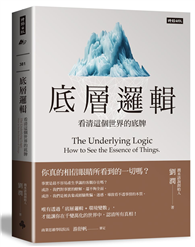In this book the author offers a critical analysis of David Hume’s argument against miracles from his Enquiry Concerning Human Understanding, "Of Miracles" is one of the most influential works written in defense of the position that belief in supernatural occurrences is not reasonable. Using Hume’s work as a point of departure, the author addresses the two most important epistemological questions asked about miracles: Is it ever reasonable to ascribe a divine source to an anomalous event in order to identify it as miraculous? and What theoretically entails sufficient evidence that a miracle has actually taken place? Contemporary rehabilitations of Hume’s argument, as put forth by Antony Flew, Alastair McKinnon, and Patrick Nowell-Smith, are evaluated. Contents: Defining the Miraculous; Hume’s Argument, Part 1;Hume’s Argument, Part 2;The Rationality of Belief and the Existence of God; Contemporary Rehabilitations of Hume’s Argument; and Miracles and Evidence.
| FindBook |
|
有 50 項符合
a. s. hume的圖書,這是第 5 頁 |
 |
$ 4000 | David Hume’s Argument Against Miracles: A Critical Analysis
作者:Beckwith 出版社:University Press of America 出版日期:1989-09-30 語言:英文 規格:精裝 / 160頁 / 23.4 x 15 x 1.5 cm / 普通級/ 初版  看圖書介紹 看圖書介紹
|
 |
$ 0 電子書 | The Great Lord Burghley: A study in Elizabethan statecraft
作者:Martin A. S. Hume |
|
|
圖書介紹 - 資料來源:博客來 評分:
圖書名稱:David Hume’s Argument Against Miracles: A Critical Analysis
|










